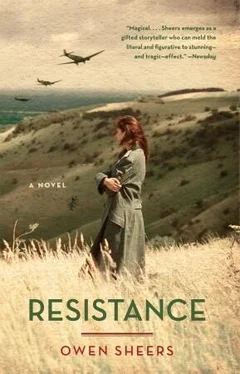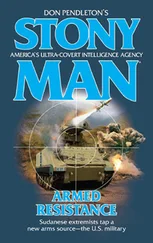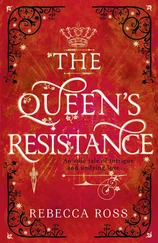It was Steiner who’d forced the issue. Albrecht had taken to walking out early from The Court each morning. The recent years of army life might have been active, but they had left him unfit. The lack of sleep, the bad food, the nervous smoking, the disruptive pattern of boredom punctuated with moments of intense fear. All of it had taken its toll. Ever since his promotion he’d rarely had to march anywhere. There was always a truck, an armoured vehicle, or a staff car to ride in. Even in Russia, where they’d all become lean through long months in the field, he’d got little exercise beyond walking the perimeter defences.
Since they’d got to Britain, he’d noticed his physical decline more. He’d put on weight but not in a good way and not in the right places. When he sat down there were soft ridges of fat where there hadn’t been before. His chest was tight, gripped in a stubborn cough. His dark hair was shot with silver, his stomach was always unsettled, and now, on top of everything, that piece of shrapnel had left a legacy of regular headaches. The war was taking his best years. He was thirty-three years old, but he felt as if he’d aged much more. The body of a young man about the heart, lungs, and skeleton of an old one.
Albrecht had started taking these early morning walks partly to ease himself into his mission in the Olchon, to get a sense of the area, to look over the valley’s intimate places. But they were also for his old-young body. To make it work, to bring the fresh air pumping through it like a purifying draught through the opened windows of a long-abandoned house. Kill or cure, as the English would say. He’d leave by The Court’s back door, leaning into the steep slope that rose directly behind the house. He always went alone, which Alex didn’t approve of despite Albrecht’s assurance there was nothing to worry about. He’d be careful and there was no need for concern. Things were different here from where they’d been before. Maggie’s visit had convinced him of that.
The incline behind The Court was immediate and abrupt and it wasn’t long before his thighs were burning and his weak chest heaving. He often removed his scarf within the first five minutes of the climb, exposing his prickling neck to the November air. On the initial few walks, he stopped regularly, suddenly stilling his body, the brushing and rustling of his clothes giving way to his own heavy breathing and the throbbing of his pulse; a crude, rhythmical beat to the unmoving view beneath him.
Just as the air purged his lungs, so the views purged his sight. The valley was beautiful, there was no denying it. No tanks, no dugouts, no snouts of antiaircraft guns protruding from behind sandbags. The few derelict buildings had fallen under age and weather, not bombs and bullets. It was nature in all its massive certainty, from the crowds of trees running along the valley floor to the barren challenge of its hilltops. He’d never seen anywhere like it before. He was a city man, born and bred in the city’s landscape of streets, buildings on buildings and lone elms and sycamores levering up the pavement slabs with their roots. As a child there’d been outings to the countryside, true, and while at university he’d even taken to walking along the granite ridges and hills of Upper Lusatia with a group of friends. But he’d never seen somewhere quite like the Olchon before. Somewhere so still, so bluntly beautiful and yet possessed, within that same beauty, of such a simple, threatening bareness too.
He’d walk straight up until he was through the fields and on the sheep tracks that cut through the brown expanses of withered bracken. Then, long before he reached the top of the ridge, he’d turn and walk along the slope, the valley falling away to his right. He suspected it was a false horizon anyway, that there’d be more climbing before he’d be able to see the land on the other side of the ridge. Not that he wanted to see that land. That was where the war was, that was where they’d come from, and for now he’d rather just explore the valley itself and know nothing of what lay beyond.
On the day he saw Steiner, Albrecht had followed the same route he’d walked on that first morning of Maggie’s visit. Skirting along the west wall, he passed above the old woman’s farm and worked his way round to the steeper curve at the head of the valley, where the incline became cliff above him and the young river cut a deep crevice, arching from between clusters of rocks. Here, he climbed again, moving above the damp ground where the spring that became the river first surfaced through the thin soil. Using this spring as a pivot, he walked down the slope and swung right again, crossing the river to bring himself back to rejoin his original path, the toe of his boot stepping over the heel of his previous footprints. He never went further around the head of the valley towards the east wall and the ridge of the Black Hill. Even then, on that first morning, he’d somehow sensed the unspoken border that would divide the valley while the patrol was there. The farm women would have the valley east of the Olchon, dark until late in the day, and they, the soldiers, would have the west of the valley, greying to night from the early afternoon onwards. Only Maggie’s farm cut into this silent division of territory, but she kept to her fields and often worked with the others along the eastern wall. Upper Blaen, at the head of the valley, marked the apex of this invisible divide.
Sometimes, if the mood took him, or the view was of particular clarity, Albrecht would pause in his walking and sit on one of the rocks near the source of the Olchon. On the morning he saw Steiner, it was the nature of the mist, lingering low in the valley, that made him stop and look out over the view. The edges of the stones nearest the stream were softened under mouldings of ice, air bubbles suspended like pearls under their transparent skins. The coarse grasses at the edge of the water were also iced, each individual blade encased in a thin tube, as brittle and fragile as the stems of champagne flutes. Albrecht carefully snapped one of these ice rods and drew it off the blade, leaving the pale grass exposed, quivering in the wind. Looking out over the valley clogged with mist, he blew through the delicate ice straw and felt his warm breath cooled against the palm of his hand.
The sun was just over the Black Hill, diffusing its light through the low mist and throwing shadows in unexpected places. Which was why, at first, Albrecht hadn’t seen Steiner standing by a stone wall far down the slope below him. It was only when Steiner removed his radio pack that his movement, unfamiliar in the rhythm of the landscape, caught Albrecht’s eye. The pink semaphore of his hands as he slipped the straps from his shoulders, then the lifting of those hands to his face. And then Steiner was still again, his uniform melding back into the greens, browns, and burnished ambers of the early winter hillside.
It was the first time Albrecht had seen anyone on this walk. Had Steiner left The Court before him? He didn’t think so. He must have taken the lane, the lower route through the valley, while Albrecht made his slower progress along the hillside. Why he was here, Albrecht didn’t know. He thought of calling down to him, but he didn’t think Steiner would hear. He’d already learnt the valley threw visual illusions all the time, that perspective seemed to shrink and shift within its narrow parameters. Steiner was too far away for a voice to reach him. Albrecht watched his motionless back, squinting to sharpen his edges. He was waiting for him to move, to turn, so he could stand and wave to him. But Steiner remained as he was, standing by the broken stone wall, his hands held to his face and his elbows angular on either side of his head. Albrecht recognised that stance. He’d seen it on hillsides all over Europe: officers and generals surveying a battlefield through the intimate distance of a pair of binoculars.
Читать дальше












